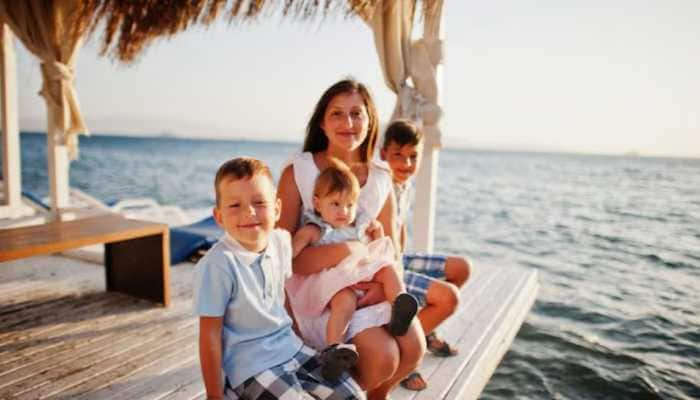World Cancer Day 2023: Fear surrounding Early Screening, Diagnosis, Preventive Care and Treatment of Cancer in India
A study by Fortis Cancer Institute Mumbai found 81% respondents stating that the fear of cancer diagnosis was a major challenge associated with early screening. Here are the facts and figures of the fear associated with early intervention in cancer and insurance related challenges.
- World Cancer Day is observed on 4th February every year
- Out of the total respondents, 41% were Cancer patients, 29% caregivers of Cancer patients, 26% were closely related Cancer patients & 4% had an opinion about Cancer care
- The survey focused on various preventive and curative aspects of Cancer like early diagnosis, screening & understanding of the disease
Trending Photos
) 81% respondents stated that fear of Cancer diagnosis was a major challenge associated with early screening: Fortis Hospital Mumbai Study
81% respondents stated that fear of Cancer diagnosis was a major challenge associated with early screening: Fortis Hospital Mumbai Study World Cancer Day: The COVID pandemic, which shook the entire world and affected at least one member from every family, taught several lessons, one of which was the importance of preventive care. It raised awareness among the masses and encouraged people to prioritise their health in order to reduce their susceptibility for certain diseases. The Fortis Cancer Institute at Fortis Hospitals Mumbai conducted this survey by reaching Mumbai residents in order to better understand how people react to such a serious disease as cancer.
The survey focused on a number of cancer prevention and treatment issues, such as early detection, screening, knowledge of the disease, difficulties faced by cancer patients during the pandemic, the need for insurance, and access to better cancer care. The statistic, which involved 4,350 Mumbai inhabitants, showed that the respondents were aware that bad lifestyle choices may cause cancer and that early screening was essential.
Dr. S Narayani, Business Head - Fortis Hospitals, Maharashtra,who spearheaded this survey said, “The survey results support the recommendation from doctors that early screening is key to early diagnosis and treatment. However, the fear of the disease keeps individuals from undergoing testing, resulting in delayed diagnoses and reducing the opportunity for treatment & better outcomes. As a healthcare organization committed to betterment of the community, we will continue to help bridge this gap by conducting awareness sessions, organizing screening camps, addressing vulnerable groups, in a bid to make early screening a mainstay”.
The following are the survey's main findings:
General understanding of cancer
- 83% respondents attributed prolonged tobacco consumption, unhealthy & junk meals, and relevant family history to increased risk of Cancer
- 3% respondents attributed family history to be the only aspect that poses as a risk for Cancer
- 78% respondents stated that all Cancers are treatable if detected early; 9% respondents stated that Cancer could not be treated even if it is diagnosed early
- 49% respondents stated that having Cancer equalled to death; whereas as 51% respondents stated that timely intervention could help
Early screening & diagnosis
- 81% respondents stated that fear of diagnosis was a major problem associated with early screening and timely intervention
- 72% respondents stated that men & women gave equal importance to Cancer screening, irrespective of family history; 17% respondents stated that timely screening was not given its due importance by either genders
- 90% respondents were aware that early screening & self-exams could help in early detection of Cancer; however, 7% respondents stated that early screening played no in detection and treatment of Cancer
- 80% respondents stated that Cancer screening is a must for everyone above 40yrs of age; however, 16% respondents stated that early and timely screening is a must only if you have a strong family history of Cancer
Preventive care
- 65% respondents understood that Cancer could recur years after completing treatment & being Cancer-free; while 26% respondents were unsure of Cancer’s recurrence patterns
- 48% respondents stated that vaccinations could help prevent certain types of Cancers; 16% stated that vaccinations played no role in Cancer prevention and 36% respondents were unaware that vaccines to prevent Cancer existed.
Talking about the mental health impact on patients with Cancer, Dr Harshit Shah, Consultant-OncoSurgery, Fortis Hospital, Kalyan said, “A key survey finding highlights the fact that patients (59%) with Cancer diagnosis do not discuss their health concerns with their family, co-workers, friends, etc. and that patients (30%) lacked mental health support. Cancer not only takes a toll on one’s body but also on their mental and emotional state. Patients under treatment witness drastic change in their appearance - hair loss, weight loss etc.; this makes them lose confidence, they start feeling like a burden, and refrain from talking about it, pushing them into isolation. Hence, both the patient and their caregiver must openly talk about these concerns, normalize discussion about Cancer, and seek a counsellors support to help lead a near-normal life”.
Insurance related challenges
- 97% respondents stated that cost of care poses a big challenge when one seeks Cancer treatment
- 83% respondents stated that Cancer must be offered under regular health insurance cover; however, 11% respondents stated that it was not necessary unless one has a strong history of Cancer
Bettering Cancer care
In terms of measures to be adopted to better Cancer care, more focus was sought towards:
- 28% respondents stated that there is a major need to build public awareness about Cancer, and 26% respondents stated that Cancer care must be made affordable for all
- 15% respondents stated that access to screening must be enabled across all geographies; and 12% respondents stated that Cancer care infrastructure must be built across tier-2 & 3 areas to make Cancer care more accessible
- 11% respondents stated sizable investments must be made to upgrade existing Cancer care facilities, and 8% respondents stated that Tobacco use must be regulated further
Commenting on the findings Dr Boman Dhabhar, Senior Consultant-Medical Oncology, Fortis Hospital, Mulund, said,“Access to care is a key aspect of this survey. When it came to challenges faced by patients and their caregivers, the study found that 28% respondents highlighted the need to build public awareness, 26% respondents highlighted the need for affordable care and 15% respondents highlighted the need to enable Cancer care across all geographies. These findings echo the global theme of Cancer care i.e., ‘closing the care gap’ – which is the need of the hour. Every governing body, healthcare entity, and support groups (like NGOs) must focus all efforts towards bring quality healthcare to non-metro geographies where access continues to remain a challenge. This will ensure, better access – better screening – early diagnosis – early intervention”.
Stay informed on all the latest news, real-time breaking news updates, and follow all the important headlines in india news and world News on Zee News.
Live Tv







)
)
)
)
)
)
)
)
)
)
